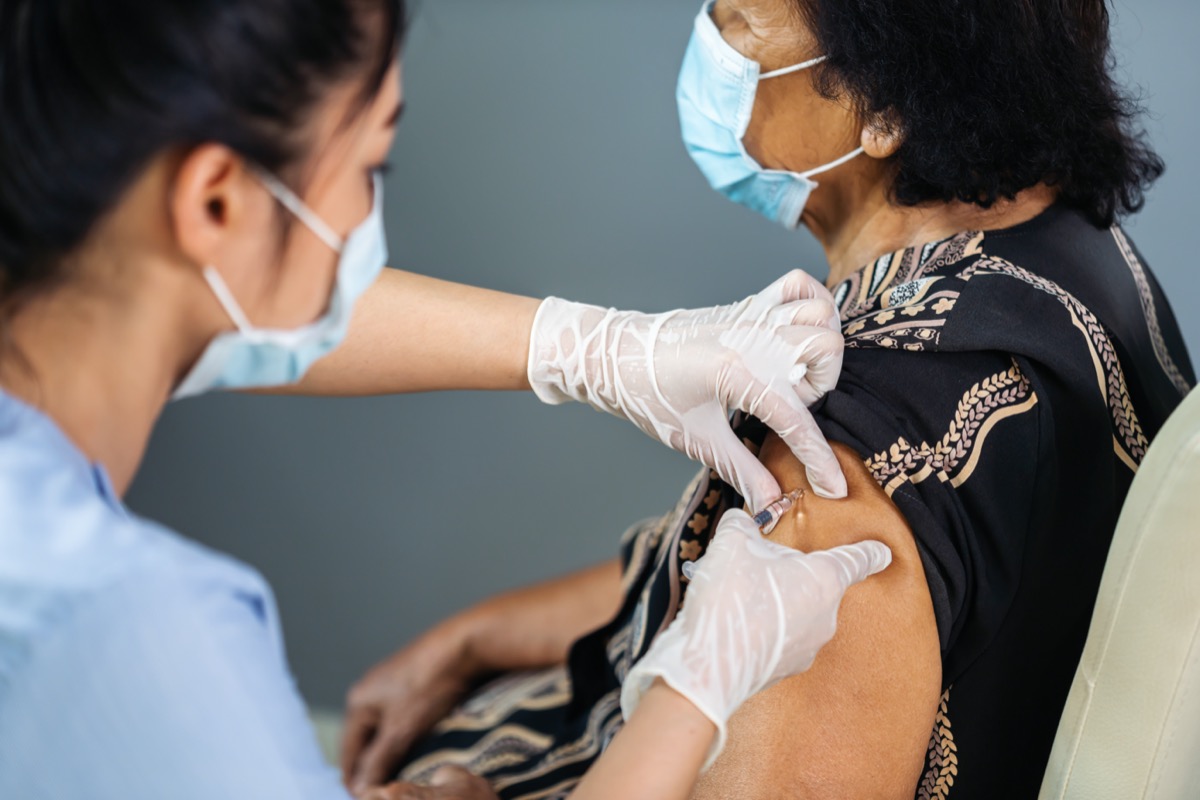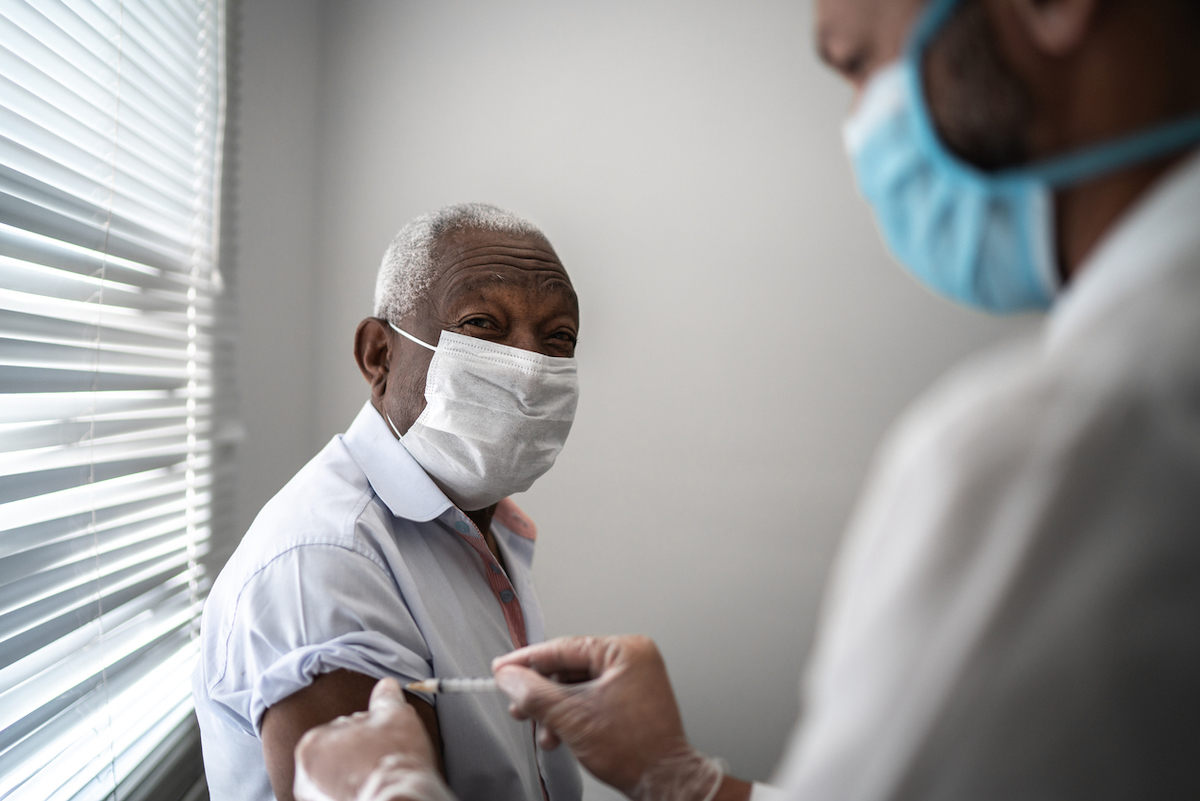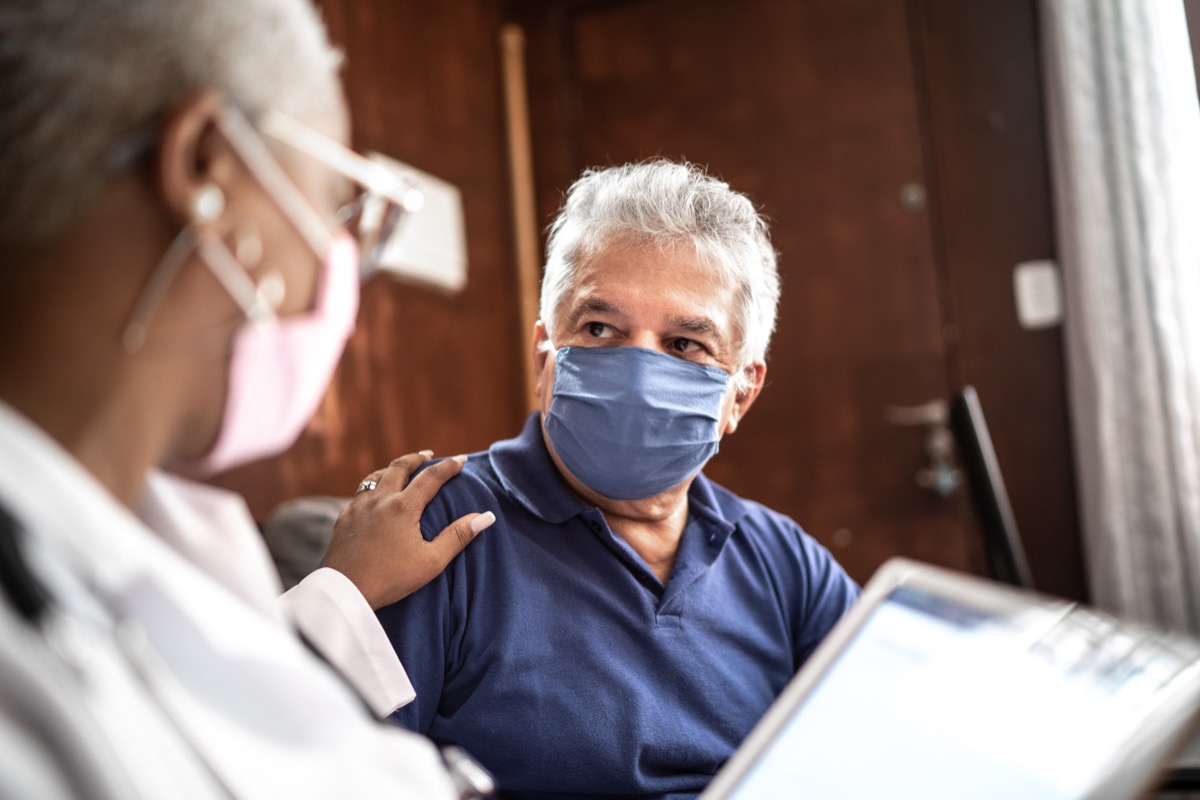F. Perry Wilson, MD, associate professor of medicine at the Yale School of Medicine, wrote an article for Vox documenting the various concerns he and his colleagues have about the vaccine rollout. The one issue that Wilson designated as “almost certain” to occur was the misrepresentation and exaggeration of the vaccine’s side effects—and that’s because it’s already started. “This is already happening. The real worry is how much it will affect the broad-scale vaccination effort,” Wilson writes. “We need to get about 70 percent of the population vaccinated (or infected with COVID-19, which would be ethically wrong) for herd immunity to end the pandemic.” If enough people are influenced to not get vaccinated, it could make reaching the goal of 70 percent a challenge. Wilson says the power of social media makes the challenge of combating people citing incorrect information that much harder. The struggle with vaccines is often the anecdotal cases that people go on to disseminate quickly and believe to be fact. “We’re going to vaccinate hundreds of millions of people. Someone is going to have a seizure after they get the vaccine. Someone is going to have a heart attack. Someone will get into a car accident,” Wilson writes, noting that these anecdotal cases would not prove that the vaccine had anything to do with what followed. When you come across anecdotal stories such as these while scrolling through social media, Wilson wants you to remember “that anecdote and evidence are not the same thing.” An odd coincidence shouldn’t replace months of rigorous lab testing. Of course, this isn’t the only concern Wilson and other experts have about the vaccine rollout. Read on for the rest of their top worries about the vaccine, and for more on where we’re headed next, Dr. Fauci Just Gave a New Timeline for Returning to Normal Post-Vaccine. The vaccine might give people a false sense of security, Wilson warns. Although it boasts 95 percent efficacy, there is still that 5 percent chance of getting COVID. “When a vaccine is 95 percent effective, everyone who gets it assumes they are in the 95 percent,” he writes. “No one thinks they are in the 5 percent, but 5 out of every 100 people are. If those five people stop engaging in behaviors like social distancing and mask-wearing before the pandemic ends, they may still” contract COVID. And for more on the limitations of the vaccine, This Is Why You’ll Need a Mask Even After the Vaccine, Dr. Fauci Says In order for the COVID vaccine to be fully effective, you need to get two doses. Whether it’s due to undesirable side effects or simple forgetfulness, there is a chance that people won’t go back for the second round, which doctors say could be problematic. Not only will the vaccine be rendered less potent if you only have one shot, but it could also end up making you sick.ae0fcc31ae342fd3a1346ebb1f342fcb Yale immunologist Akiko Iwasaki told Wilson, “It is conceivable that people who have only one shot of the vaccine … can become infected.” And for more on what happens if you don’t go back for the second round, This Is What Happens If You Only Get One Dose of the COVID Vaccine. Wilson points out that there are about “80 million people in the U.S. with no regular access to doctor’s care, many of whom have significant comorbidities that no one is documenting. These are predominantly people of color and of lower socioeconomic status.” This group of people has already been greatly impacted by the pandemic. Wilson is concerned that due to issues of access, they may not get the vaccination they need. And for more up-to-date information, sign up for our daily newsletter. Doctors tend to get caught up in treating the individual in front of them and can forget about what is needed for society’s greater good, Wilson says. He predicts that when we get to the second phase of vaccine rollout, which is when people with preexisting conditions can get vaccinated, doctors might stretch the truth to make their patients eligible. “We want to keep our patients happy. That’s not always the right thing to do,” Wilson writes. “The bigger problem with doctors upgrading people to ‘high risk’ is the inappropriate allocation of scarce vaccine resources to those who would likely do OK without it.” And for more on the current state of the pandemic in the U.S., These States Are Locking Down Again Amid COVID.



